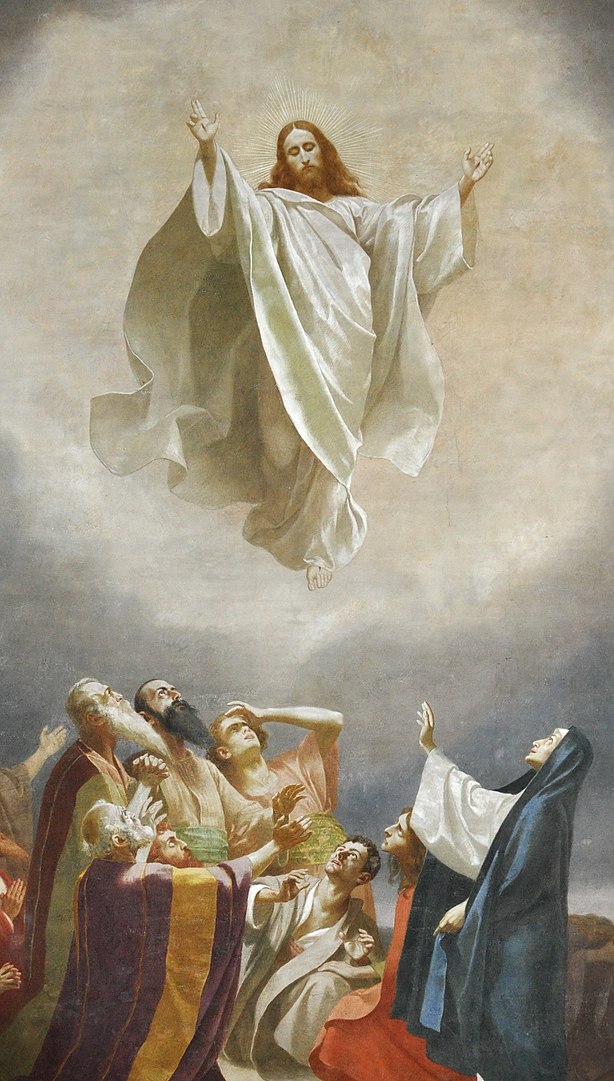Fr Paolo Consonni, MCCJ
Ascension Sunday
“See, I am sending upon you what my Father promised; so stay here in the city until you have been clothed with power from on high.” (Lk 24: 49)
Unable to travel because of the pandemic, new terms like “staycation” (a blending of the words “stay” and “vacation”) have become popular to describe ways of spending quality time without leaving Macau. Being a missionary, often on the move, the past months have felt a bit claustrophobic, as you might agree. But I have to admit that there are spiritual advantages to staying put in one place.
“Stay here in the city until you have been clothed with power from on high” (Lk 24: 49). For the first time I now realize that these are the very last words of Jesus as recorded in the Gospel of Luke, the ending of which will be read during the solemnity of the Ascension. In the past, during this solemnity, I always paid more attention to the mission-driven dispatching of the disciples to all nations, but now, unable to travel, I sense that Jesus’ last order to “stay in the city” must surely have a special significance.
I recall that monks and nuns of monastic orders are required to make the “vow of stability”, meaning that once they are assigned to a particular monastery, they have to remain there for life. The monk or nun has “to grow where he/she is planted” and renounce searching for an “ideal” community to live out their religious life. Monastic life helps those who embrace it avoid the temptation to escape the demanding regularity of the rhythm of life in their monastery. Stability might become monotonous, but it is an effective antidote against spiritual restlessness.
There is an interesting connection here. The Apostles “staying” in Jerusalem and the monks “staying” in their monastery both give the Holy Spirit time and space to transform them from within, so that they might become credible witnesses of the Risen Christ. In both cases, the time of “staying” becomes a time of preparation, of conversion, of enlightenment. It is a time of discernment without which one’s mission would only become a noisy repetition of slogans disconnected from the Gospel.
By remaining in Jerusalem, the Apostles allowed the Holy Spirit, and not themselves, to be the real protagonist of the Church’s mission. This preparation of His coming consisted in prayer and in the recovery of the wholeness of their community (the choice to replace Judas with Matthias), something which, I guess, involved the healing of the trauma caused by betrayal and the restoration of communion and trust among them.
In the future, the Apostles would surely remember this special “staycation” in Jerusalem before going out on their mission. During those days they learned that the Holy Spirit does not come down from heaven as a display of magic: faith and openness are needed for Him to penetrate and transform those who welcome Him. They realized that the outpouring of the Spirit is an ecclesial event more than an individual favor from God, and therefore the time spent together within the community is not wasted. They understood that the invocation to the Holy Spirit is not only a ritual, but the expression of their deepest desire to experience the presence of the Risen Christ even after His Ascension, every day, till the end time ((cf.) Mt 28:20).
In the same way, this forced period of “staying in the city” during the pandemic, though difficult, has helped me to give priority to internal over external activism. It has allowed me to experience that, if I am open to serve without preconditions, God will always find ways to use my time and capabilities. I learned that patient waiting is a concrete way to trust God. I also had more occasions to face my fragility and shortcomings with honesty and clarity, since it is difficult to hide them if I am constantly with people who know me well, both the good and the bad. Hopefully these experiences will make me a better missionary.
Actually, even the vocation to married life involves a vow of stability. The constant presence and commitment within a family, and the routine of everyday life, allow mutual love to grow and deepen. It is not easy, we all know it. Yet, the spiritual and emotional stability of marriage is indeed the remedy against the restless urge to constantly change in search of an “ideal” partner and an “ideal” life. Happiness instead emerges when we face our real self within the concrete circumstances of life.
Sooner or later the time to travel will resume once again and activities will fill our agendas more than ever. In the meanwhile, I hope that this period of “staying in the city” might become indeed a “holy-stay,” a time “to be clothed with power from on high” to become better missionaries, better believers and, hopefully, more stable persons, even on the inside.
(Image: Christi Himmelfahrt by Gebhard Fugel, c. 1893. Source: Wikipedia)


 Follow
Follow


